第33章 CHAPTER XI(3)
The library was a mighty hall, lighted from the roof, which was formed of something like glass, vaulted over in a single piece, and stained throughout with a great mysterious picture in gorgeous colouring.
The walls were lined from floor to roof with books and books: most of them in ancient bindings, but some in strange new fashions which I had never seen, and which, were I to make the attempt, I could ill describe. All around the walls, in front of the books, ran galleries in rows, communicating by stairs. These galleries were built of all kinds of coloured stones; all sorts of marble and granite, with porphyry, jasper, lapis lazuli, agate, and various others, were ranged in wonderful melody of successive colours. Although the material, then, of which these galleries and stairs were built, rendered necessary a certain degree of massiveness in the construction, yet such was the size of the place, that they seemed to run along the walls like cords.
Over some parts of the library, descended curtains of silk of various dyes, none of which I ever saw lifted while I was there; and I felt somehow that it would be presumptuous in me to venture to look within them. But the use of the other books seemed free; and day after day I came to the library, threw myself on one of the many sumptuous eastern carpets, which lay here and there on the floor, and read, and read, until weary; if that can be designated as weariness, which was rather the faintness of rapturous delight; or until, sometimes, the failing of the light invited me to go abroad, in the hope that a cool gentle breeze might have arisen to bathe, with an airy invigorating bath, the limbs which the glow of the burning spirit within had withered no less than the glow of the blazing sun without.
One peculiarity of these books, or at least most of those I looked into, I must make a somewhat vain attempt to describe.
If, for instance, it was a book of metaphysics I opened, I had scarcely read two pages before I seemed to myself to be pondering over discovered truth, and constructing the intellectual machine whereby to communicate the discovery to my fellow men. With some books, however, of this nature, it seemed rather as if the process was removed yet a great way further back; and I was trying to find the root of a manifestation, the spiritual truth whence a material vision sprang; or to combine two propositions, both apparently true, either at once or in different remembered moods, and to find the point in which their invisibly converging lines would unite in one, revealing a truth higher than either and differing from both; though so far from being opposed to either, that it was that whence each derived its life and power.
Or if the book was one of travels, I found myself the traveller.
New lands, fresh experiences, novel customs, rose around me. I walked, I discovered, I fought, I suffered, I rejoiced in my success. Was it a history? I was the chief actor therein. I suffered my own blame; I was glad in my own praise. With a fiction it was the same. Mine was the whole story. For I took the place of the character who was most like myself, and his story was mine; until, grown weary with the life of years condensed in an hour, or arrived at my deathbed, or the end of the volume, I would awake, with a sudden bewilderment, to the consciousness of my present life, recognising the walls and roof around me, and finding I joyed or sorrowed only in a book. If the book was a poem, the words disappeared, or took the subordinate position of an accompaniment to the succession of forms and images that rose and vanished with a soundless rhythm, and a hidden rime.
In one, with a mystical title, which I cannot recall, I read of a world that is not like ours. The wondrous account, in such a feeble, fragmentary way as is possible to me, I would willingly impart. Whether or not it was all a poem, I cannot tell; but, from the impulse I felt, when I first contemplated writing it, to break into rime, to which impulse I shall give way if it comes upon me again, I think it must have been, partly at least, in verse.